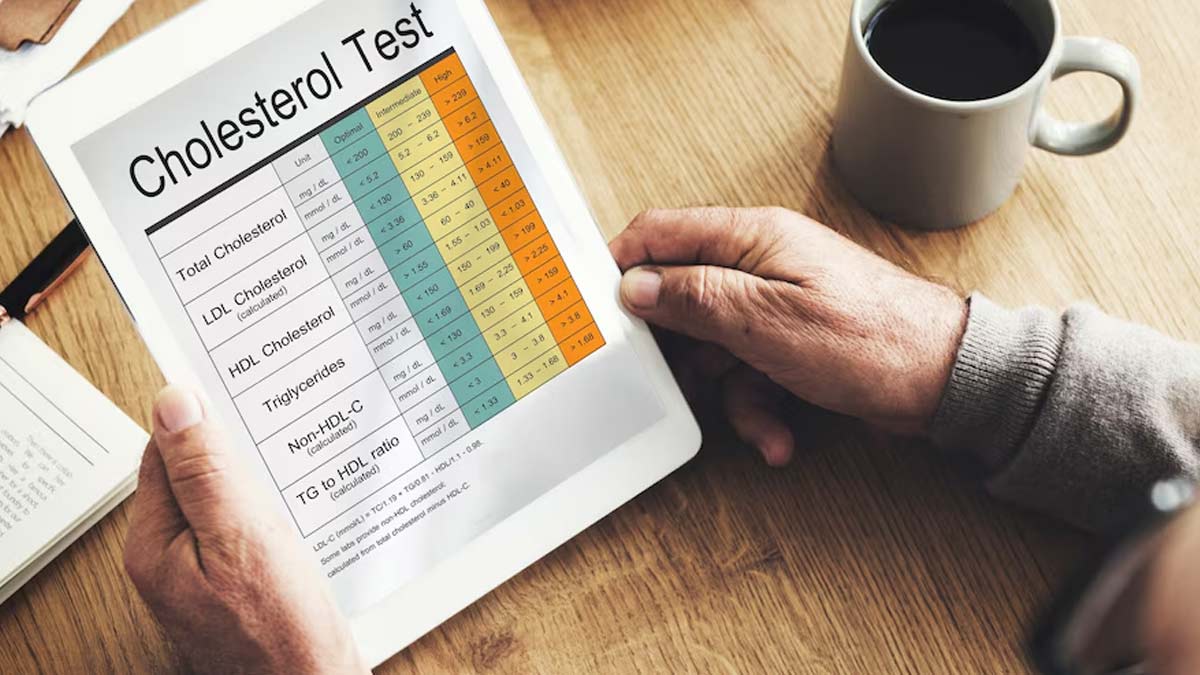
Cardiovascular diseases (CVDs) are the leading cause of death worldwide, accounting for 32 percent of deaths annually, according to the World Health Organization (WHO). Among these, 85 percent CSD related deaths are due to heart attacks and strokes. Risk factors such as obesity and high cholesterol contribute to heart-related conditions, which require lifestyle modifications and proper diet plans. However, there are misconceptions about cholesterol, which need to be busted to help people adopt more healthier practices to tackle it.
Table of Content:-
Dr Ravishankar Polisetty, the pioneer in Polyscientific Ayurveda (PSA), emphasises the importance of understanding the differences between HDL and LDL cholesterol and debunks common myths about cholesterol.
Myth 1: Only bad cholesterol causes heart attack
Reality: There are good and bad types of ghee, depending on your choice and the same applies to cholesterol. Though High-density Lipoprotein (HDL) cholesterol is often referred to as ‘good’ cholesterol and low-density lipoprotein (LDL) as ‘bad’ cholesterol, variations in both can be reasons for cardiovascular diseases. Scientific studies suggest that having very high levels of HDL and very low levels of LDL can also increase the risk of heart attacks. This means that the impact of cholesterol on heart health depends on an individual’s body condition.
Also Read: Pay Attention To These Warning Signs Of High Cholesterol In Your Eyes
Myth 2: Allopathic medicines can only manage LDL levels

Reality: In allopathy, statin-based drugs are among the most commonly used treatments for lowering LDL cholesterol. However, maintaining a healthy lifestyle is equally important for managing cholesterol levels. This can be achieved by integrating traditional Ayurvedic knowledge with modern technologies. Ayurveda focuses on disease prevention and addresses the root causes rather than just treating symptoms. Since Ayurvedic methods require individuals to actively commit to their health through lifestyle modifications, dietary changes and fitness regimens, they complement allopathic treatments for lifestyle diseases effectively.
Myth 3: Avoiding certain food items will lower LDL
Reality: It is your body that decides which fats are beneficial for it. Therefore, depending on your body type, you need to choose your diet appropriately. Ayurvedic texts state that the three doshas—Vata, Pitta, and Kapha—are responsible for a person’s physiological, mental, and emotional health. For example, if you are predominantly Pitta-dominant, you should select cow ghee. Conversely, if you are a Vata type, then buffalo ghee is more suitable. An experienced Ayurvedic practitioner can assess your doshas with the help of modern PSA techniques and recommend the types of fats that will be best for you. He can also suggest a diet plan suitable for your physical constitution.
Also Read: Can High Cholesterol Cause High Blood Pressure?
Myth 4: Medicinal intake alone lowers cholesterol levels
Reality: Medicinal intake, along with a tailor-made fitness regimen, will help achieve the desired results. Physical exercise to balance doshas based on an individual’s unique constitution and requirements can ensure optimal health. The recommended activities include walking, running, cycling, and swimming. Often, these exercises can also help raise a person’s HDL cholesterol levels. Meanwhile, practices like Yoga can help lower stress levels, which in turn contributes to better heart health.
Final Word
High cholesterol has become a common health issue lately. Most people have high levels of bad cholesterol(LDL) which can hamper their cardiovascular health. However, it is important to be aware of facts and not fall for myths to address the problem better.
Also watch this video
How we keep this article up to date:
We work with experts and keep a close eye on the latest in health and wellness. Whenever there is a new research or helpful information, we update our articles with accurate and useful advice.
Current Version